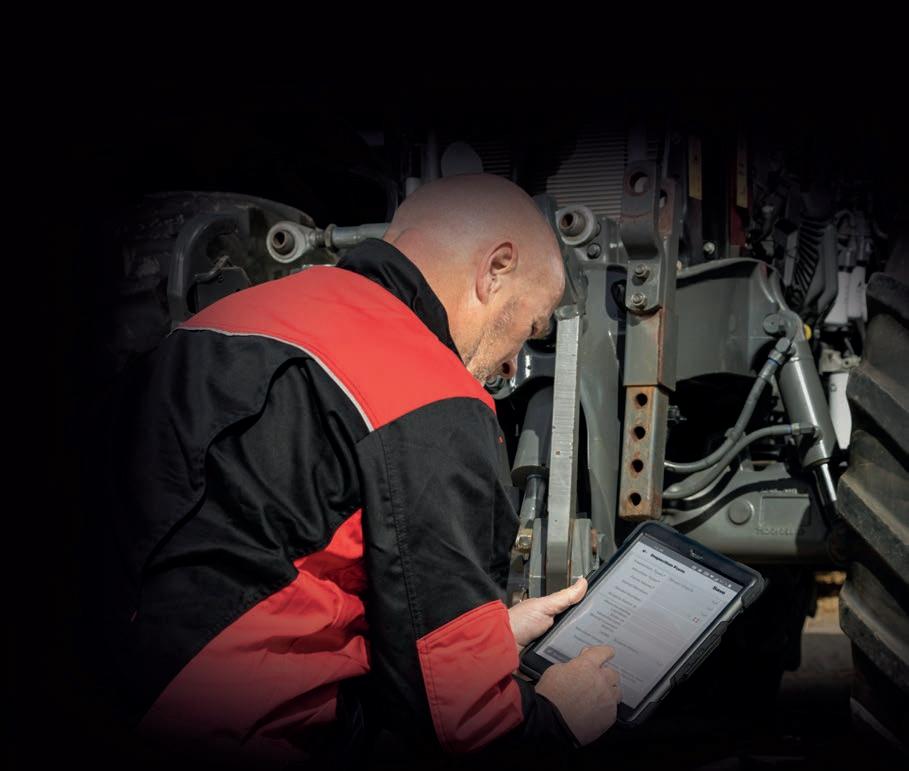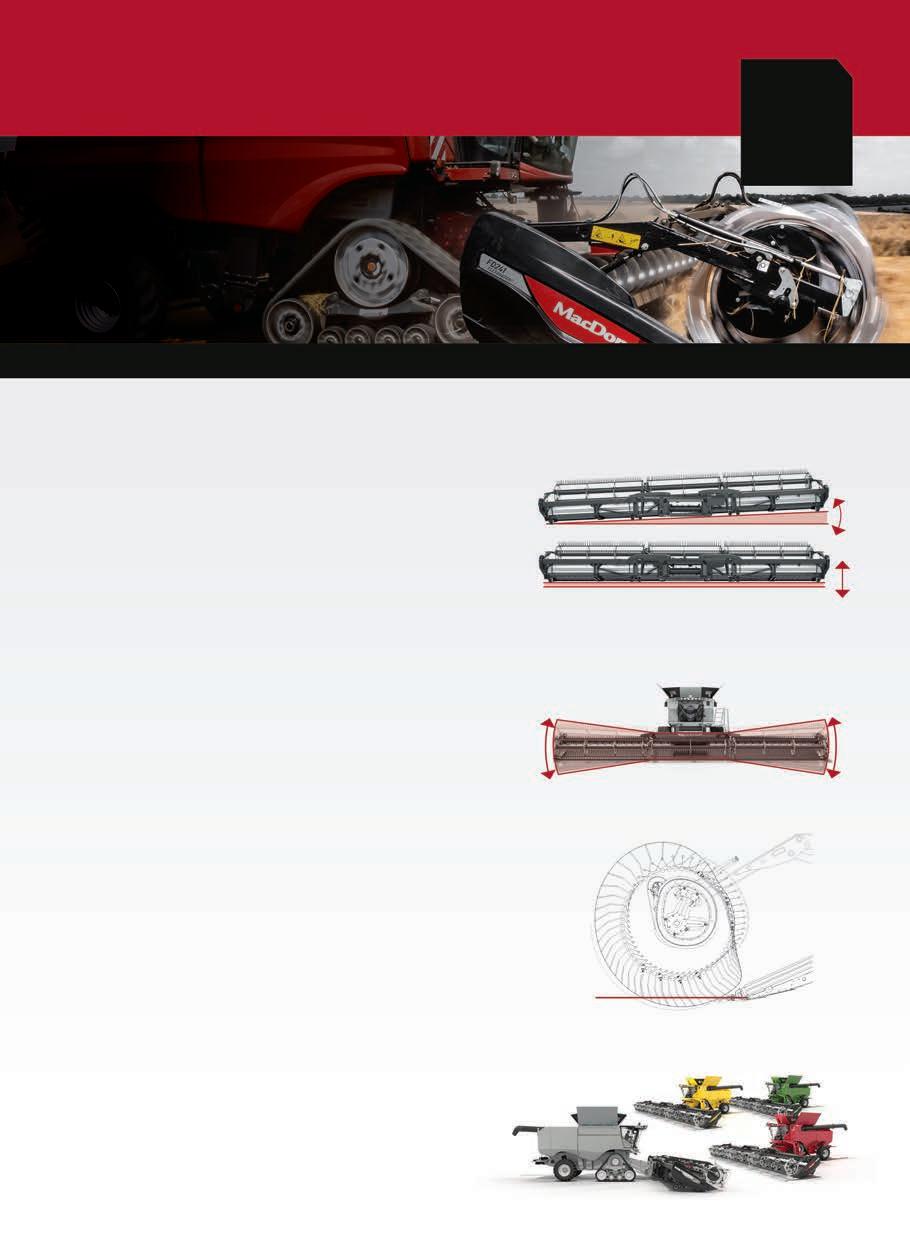




























































































































































Advice for those planning to start a new business in farm contracting
Latest prices for the full range of services from farm contractors
Guidance for safe load transport on the road to comply with regulations
Essentials that all operators need to know about mud on the road laws
Helmets are a must to keep ATV users safe in their work in farming
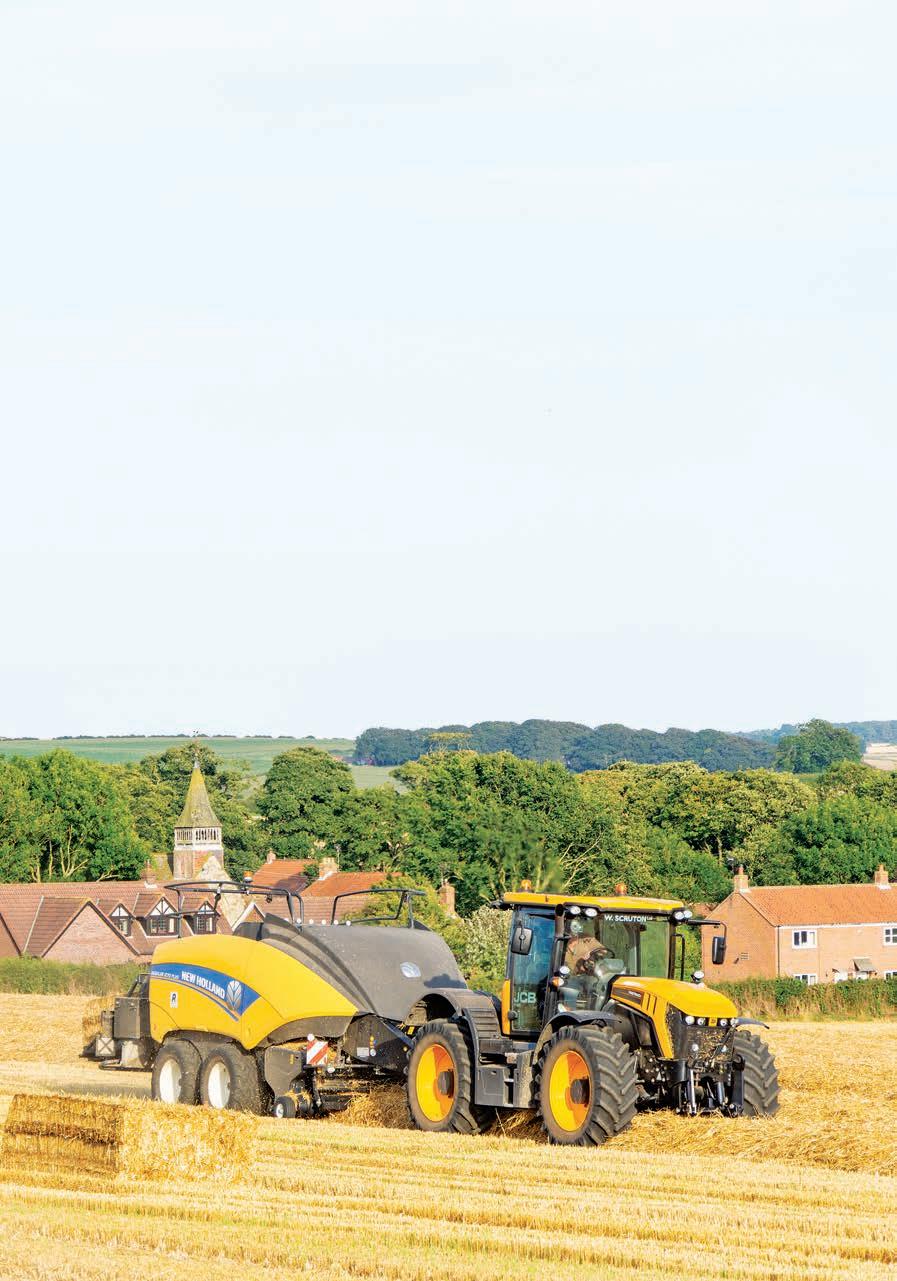
How a Yorkshire contractor grew his business with specialist services
An assured contractor scheme that adds to business professionalism
Contracting businesses need to be aware of drug and alcohol problems
Fixed chamber baler-wrapper combination
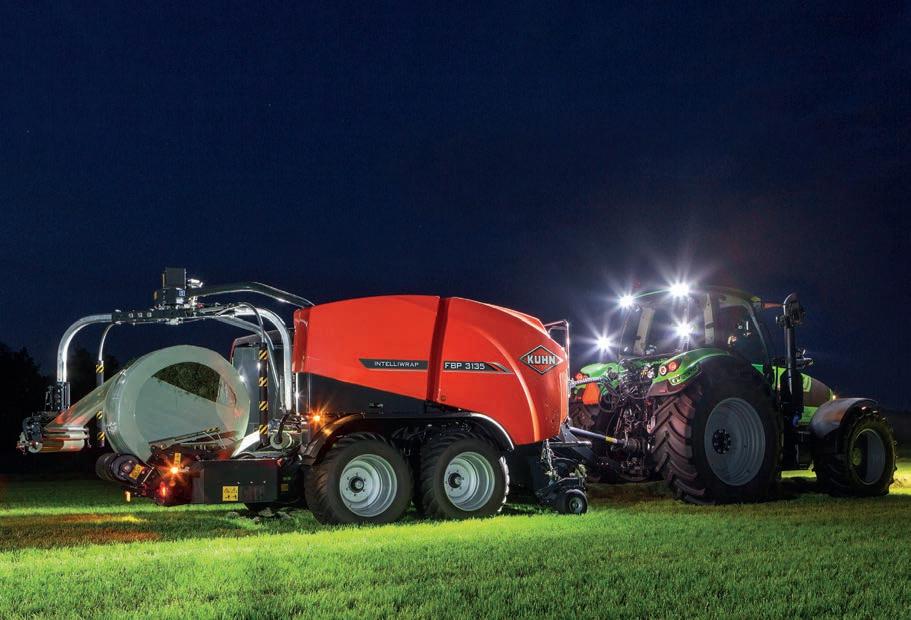

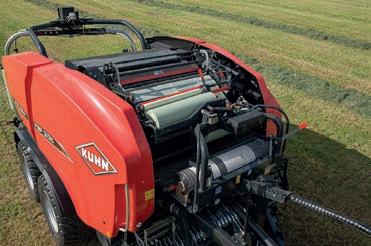


Patented award winning technology
Reduces costs, enhances bale quality and simplifies wrap recycling.
The KUHN baler-wrapper combination range




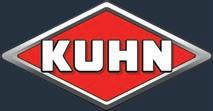
EDITOR Sandy Cox
DESIGN Dan Tolhurst
ADVERTISEMENT SALES
Alex Cronin +44 (0)20 8639 4406
ADMINISTRATOR
Martin Attis +44 (0)20 8639 4409
PUBLISHING DIRECTOR
Paul Cosgrove +44 (0)20 8639 4401
CONTRIBUTING WRITERS AND PHOTOGRAPHERS
Jill Hewitt and David Laley
Farm Machinery Journal is published by Sundial Magazines Ltd, Sundial House, 17 Wickham Road, Beckenham, Kent, BR3 5JS
TEL +44 (0)20 8639 4400
FAX +44 (0)20 8639 4411
EMAIL info@farmmachineryjournal.co.uk
WEB www.farmmachineryjournal.co.uk
SUBSCRIPTIONS
Farm Machinery Journal
subscriptions, Trinity House, Sculpins Lane, Wethersfield, Essex, CM7 4AY
TEL +44 (0)1371 853634
EMAIL farmmachineryjournal@ escosubs.co.uk
NEWSTRADE
Seymour Distribution, 2 East Poultry Avenue, London, EC1A 9PT
TEL +44 (0)20 7429 4000
REPRO
Design & Printing Solutions Ltd
Unit 45C , Joseph Wilson Industrial Estate, Whitstable, Kent CT5 3PS
TEL +44 (0)1227 770034
PRINTING
William Gibbons & Sons Ltd., 26 Planetary Road, Willenhall, West Midlands, WV13 3XB.
COPYRIGHT
Sundial Magazines Ltd 2023. All rights reserved. Reproduction in whole or in part is forbidden without the express permission of the publishers.
ISSN 2055-043X Sundial Magazines Ltd. Registered in England no. 4134490.
CONDITIONS FOR ADVERTISING
All advertisements are accepted subject to the publisher’s standard conditions of insertion.
For a copy of advertising terms and conditions, please write to Paul Cosgrove at Sundial Magazines Ltd, Sundial House, 17 Wickham Road, Beckenham, Kent, BR3 5JS







to the latest edition of the FMJ UK Contractor Handbook, designed to provide vital information for agricultural contractors and their customers.
It’s been a year of ups and downs in more ways than one for both farmers and the contractors they employ to carry out some of the most vital tasks on the farm, from ground preparation and sowing, to fodder conservation and harvesting, and much other essential work too. One of the favourable ‘downs’ has been the reduction that we’ve seen in red diesel prices since the excessive highs of last year, but at the time of writing they unfortunately seem to be on the up again.
Machinery prices always seem to be on the up, and that’s one of the reasons why many farmers are making greater use of contractors. A contractor can generally spread the costs across a far bigger acreage than an individual farmer, making for economical use of machinery. It’s an unfortunate fact that rising machinery costs have to be passed on to customers, but by working as efficiently as possible, price rises can be kept within bounds. This is reflected in the NAAC’s survey of contracting prices, which shows only a minor rise in the cost of some operations this year, and while others have gone up a little more, they are generally below the level of overall inflation.
Our aim in this publication, produced by Farm Machinery Journal in association with the NAAC, is to provide information for both contractors and their farmer clients to assist them in working together and understanding more about each other’s businesses. We hope the following pages are useful and informative in helping to develop fruitful ongoing relationships between contractors and customers.






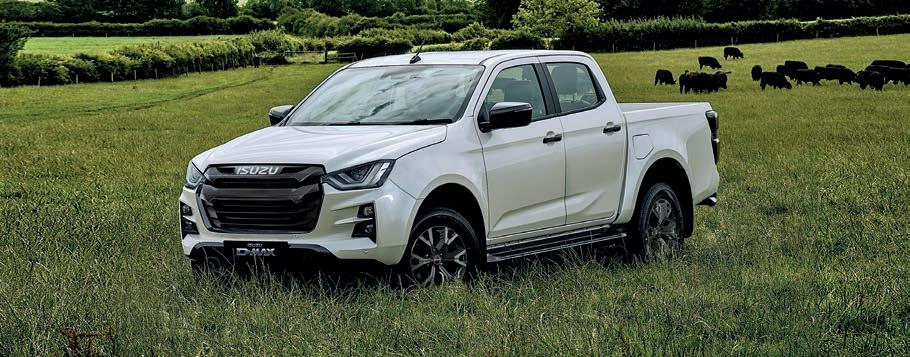

Procedure)





Prices are based on red diesel at £1.00 per litre. Please note that prices are likely to vary as input costs change and contractors should add a fuel surcharge if diesel prices are over £1.00/l to cover their costs. If any non-agricultural operations are carried out, expect the costs to be higher to take account of using white diesel. These survey prices are intended as a guide only. They are average prices surveyed from NAAC members - however the actual price may vary considerably between regions, soil types, distance travelled, size of contract undertaken, size and type of equipment used, amount of product applied etc. Contractors may also have individual arrangements with customers regarding diesel (eg. separate fuel surcharge, fuel used on-farm, etc). The prices below do not reflect this market trend, and this may make a significant difference to contracting charges.
erection (with materials)
80cm x 90cm
120cm × 70cm
120cm x 90cm
- 120cm × 130cm
- Round 120cm
- Round 150cm 4.69
*note these prices may vary with bale density
Bale-wrapping
- Round 120cm (with 6 layers of plastic)7.06
- Round 120cm (with 4 layers of plastic)6.08
- Round 120cm (without plastic)3.04
- Square 120cm × 70cm (with 6 layers of plastic)8.33 - Square 120cm × 70cm (with 4 layers of plastic)8.63 - Square120cm × 70cm (without plastic)3.50 Bale Chasing (per bale)3.06
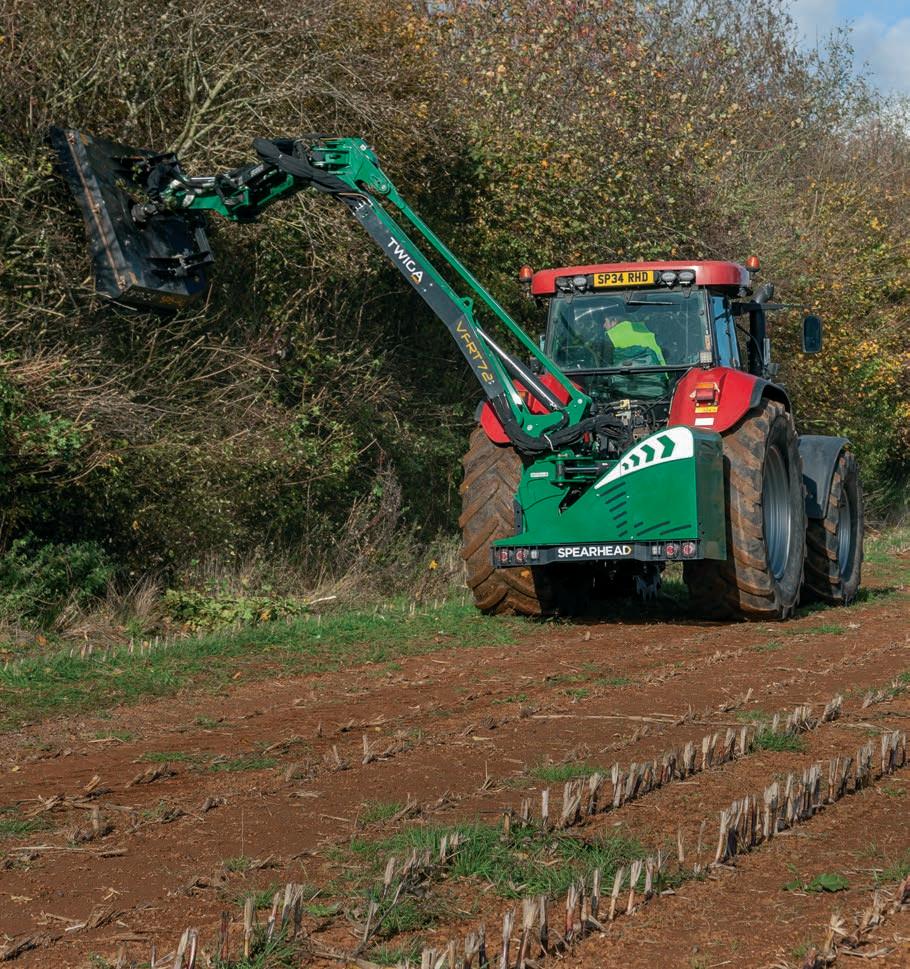

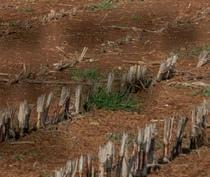
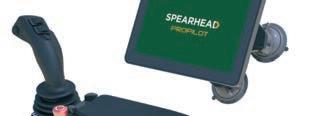








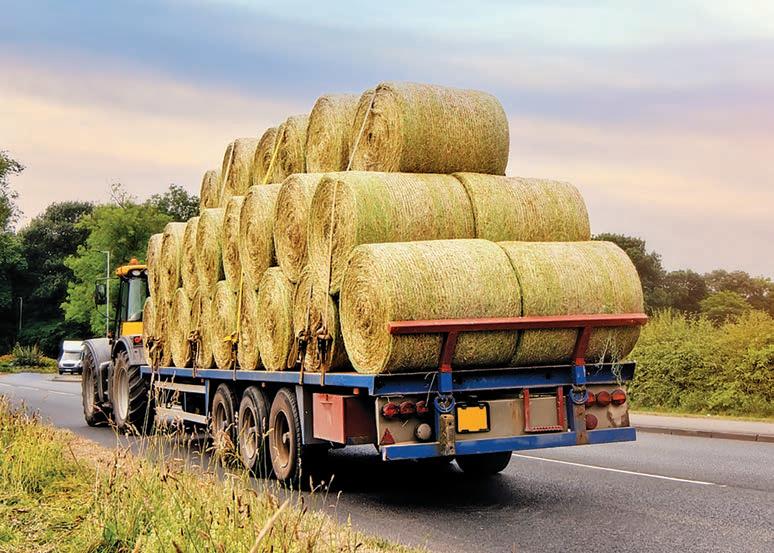
New guidance issued this year by the Driver and Vehicle Standards Agency (DVSA) makes it clear that everyone involved in road transport operations has legal responsibilities to ensure that loading is done safely. The driver of the vehicle is not the only responsible party and the vehicle operator and the person or company that puts the load onto the vehicle also have responsibilities in law.
Statistics have shown that in the 10 years since the on-road
enforcement approach was last updated, there have been several load shift incidents involving agricultural vehicles, which is one of the reasons for this new guidance. All loads carried on vehicles must be secured, whatever the journey. This is to protect the people involved in loading, unloading and driving the vehicle, other road users and pedestrians. But while this may sound onerous, the DVSA has clarified that the load securing system can include:
• the structure of the vehicle or trailer.
• physical barriers to movement such as internal bulkheads, stanchions, coil wells, pins and chocks.
• lashings.
• friction matting, a high-friction floor or surface.
Drivers and vehicle operators should choose the most suitable securing system for their load and vehicle. It is vital is that all users, including employers,
self-employed farmers and drivers must assess and manage risk during loading, transport, and unloading agricultural products. This includes considering the risk of load movement during the journey and during unloading, along with other risks such as working at height and manual handling.
Unsecured loads can affect the handling of the vehicle, increase the braking distance, or increase the risk of a rollover. Load items falling from the vehicle during the journey can strike other vehicles or pedestrians, or cause an obstruction in the road that results in other drivers to have to swerve or brake heavily to avoid it. The weight of heavy items alone cannot be relied on to hold them in place, and even small, light items can kill if they come off a vehicle travelling at speed.
The Road Vehicles (Construction & Use) Regulations 1986 say that loads must be secured to prevent harm or nuisance to other road users. The DVSA highlights that even loads such as cut grass or soil must be secured so that they are not blown from the vehicle and onto the public highway.
In practical terms this means
Photo: David Laley
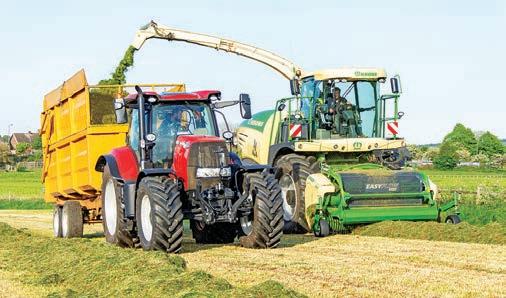
that a user can consider a load to be secure if their risk assessment shows that a load is below the height of the trailer/ vehicle body to the extent that the structure of the vehicle sufficiently secures it without the need for any other security measure. The risk assessment should include consideration of the action of wind on the load and, more likely important for agricultural produce, bounce out of the trailer/vehicle.
Overall, users must make sure the load and the way it is secured does not present a risk of danger or nuisance to other road users. The new guidance can be found on the UK government website at https://tinyurl.com/secureload

DVSA guidance says that when a
Dealing with an unstable load
If you become aware that part of your load has shifted but is still on the vehicle or trailer, the DVSA guidance says you should:
• slow down.
• avoid heavy braking and steering.
• look for a safe place to stop and resecure the load if safe to do so.
You should not continue the journey until the load is secure.
If the load comes off the vehicle and is obstructing traffic or likely to obstruct it, in a dangerous position or likely to put people in danger while being recovered, the guidance advises:
• Stop in a safe place as soon as possible.
• Call 999 and report it to the police.
• Wait until the emergency services or highway authorities arrive.
You must not try to retrieve any part of the load from the road if you’re on a dual carriageway, motorway, or any other road where you might be in danger.

Are you getting the best from your RTK equipment?
RTKFnet operate an extensive network of the latest RTK Basestations, connected and managed via our in-house server. More than a sim card, more than a signal, RTKFnet is a network that constantly evolves to keep your business at the forefront of RTK Technology.
Compatible with
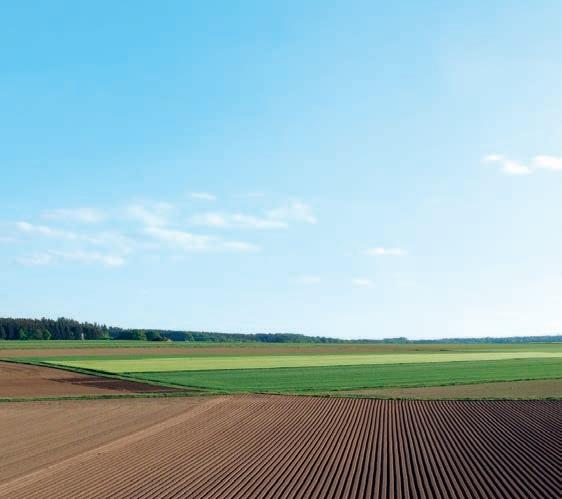

Our network provides robust coverage
England
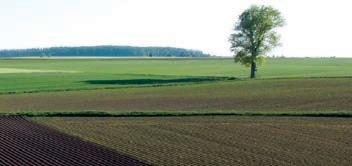

More satellites, greater reliability, increased performance and industry leading support – Just some of the reasons people switch to RTKFnet. ed rt toRTKFnet


While suitable signage should be used to warn other road users that there may be mud on the road, adequate steps need to be taken to preven transfer from fields and to clean up any that gets on the highway.
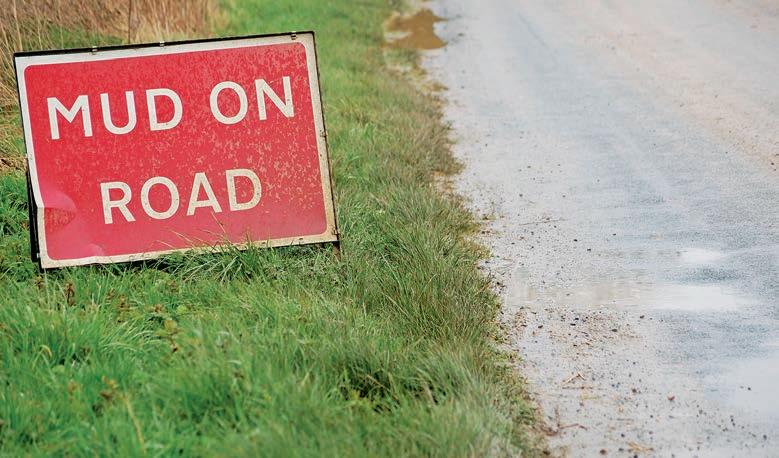
The wetter weather of autumn and winter make it important that contractors and farmers do their upmost to keep soil in the field and off the road. High rainfall, poor drainage and compaction can be a recipe for heavy losses of soil from fields, but it is the day-to-day fieldwork that can bring mud onto the road and cause accidents.
Both contractors and farmers are responsible for cleaning up mud dropped on public roads by their own vehicles and livestock. It is important from a
contractor’s perspective, before work is carried out, to have prior agreement with the client, ideally in writing, about who will be responsible for any mud on the roads. This should obviously include who will carry out any clean-up required and who is responsible for signage. Both parties need to be fully aware of which of them has those responsibilities.
Leaving mud on the road is a criminal offence under various aspects of legislation, which can result in prosecution and a fine of up to £1000 or imprisonment, depending
upon the seriousness of the offence. It is generally the driver who deposited the mud that faces responsibility for mud left on the road. Under the Highways Act 1980, it is the driver of the vehicle which dropped the mud on the highway who commits the criminal offence. Any responsible contractor will ensure that those working for the business are not put in that position and ensure their work is carried out within the law. In relation to potential civil liability, again the main liability will rest with the
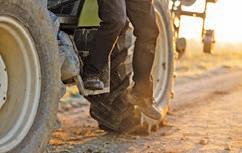
driver of the vehicle. The Local Authority can seek to recover the costs of clean up from the party who deposited the mud. In addition, anyone who suffers loss or damage due to an accident caused by the mud can also seek compensation from the person who dropped the mud. There is also potential liability for the landowner or farmer if no reasonable steps are taken to ensure that a contractor adheres to safe practices. So,
The NAAC is regularly updating its members on transport issues, changes to legislation, new guidance and best practice, and members can access advice from the NAAC’s transport advisor. This all helps to keep NAAC members road-legal and safe. Visit www.naac.co.uk for more information.
Left: It needs to be clear between contractor and client as to which is responsible for warning signs and mud clean up.
it is vital to keep roads clean. It is always recommended that a written agreement is in place between the contractor and farmer in relation to cleaning mud off the road, so everyone is clear. Ideally, written records should also be kept of the decisions made and the regularity of clean-up required. It is also recommended that all parties have suitable public liability insurance.
Safe practices will include taking steps to clean mud off vehicles before entering the highway, having suitable warning signage during operations and clearing away any mud that has been deposited. If mud is likely to be on the road it is important the farmer/contractor puts out signage and undertakes regular clean-up. Signage requirements can vary from area to area, and contractors are advised to check with the local highway authority.
Laws about mud on roads
The Highways Act 1980, sections 148 and 161, specifically deal with the offence of “depositing things” on the highway, which includes mud and dung, and section 149 gives the highway authority the power to recover any expenses involved in having to clean up the highway.
In Scotland, mud from vehicles on roads is specifically covered by section 95 of the Roads (Scotland) Act 1984.
Under the Road Traffic Act 1988, section 2a, driving a tractor on the road with significant amount of mud attached to it may be considered as dangerous driving.
The Health and Safety at Work Act 1974 places an obligation on farmers and contractors to look after the health and safety of themselves, their employees and anyone affected by a working operation .
Below: Maize harvesting often takes place when ground conditions are poor, so dealing with mud where tractors and trailers move from field to road is essential.
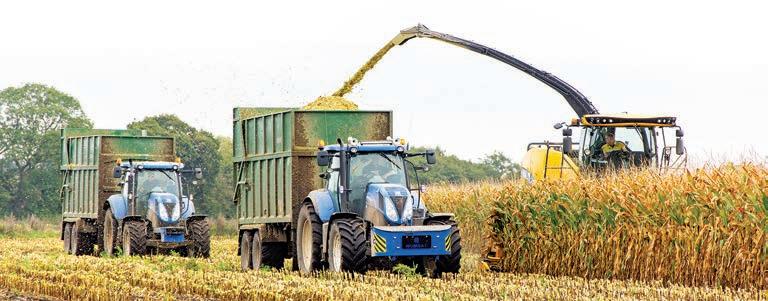
















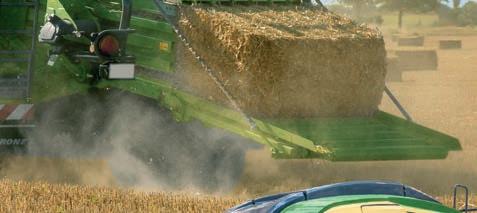
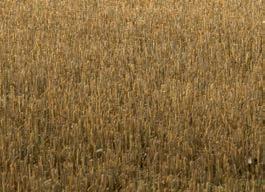
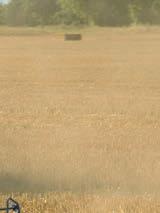
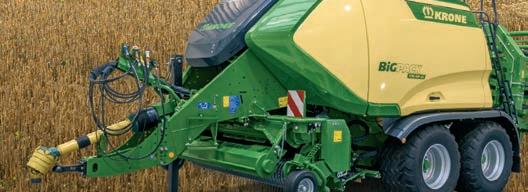
EXTREMELY HIGH THROUGHPUTS - EXTREMELY CONVENIENT
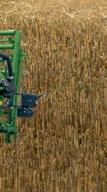
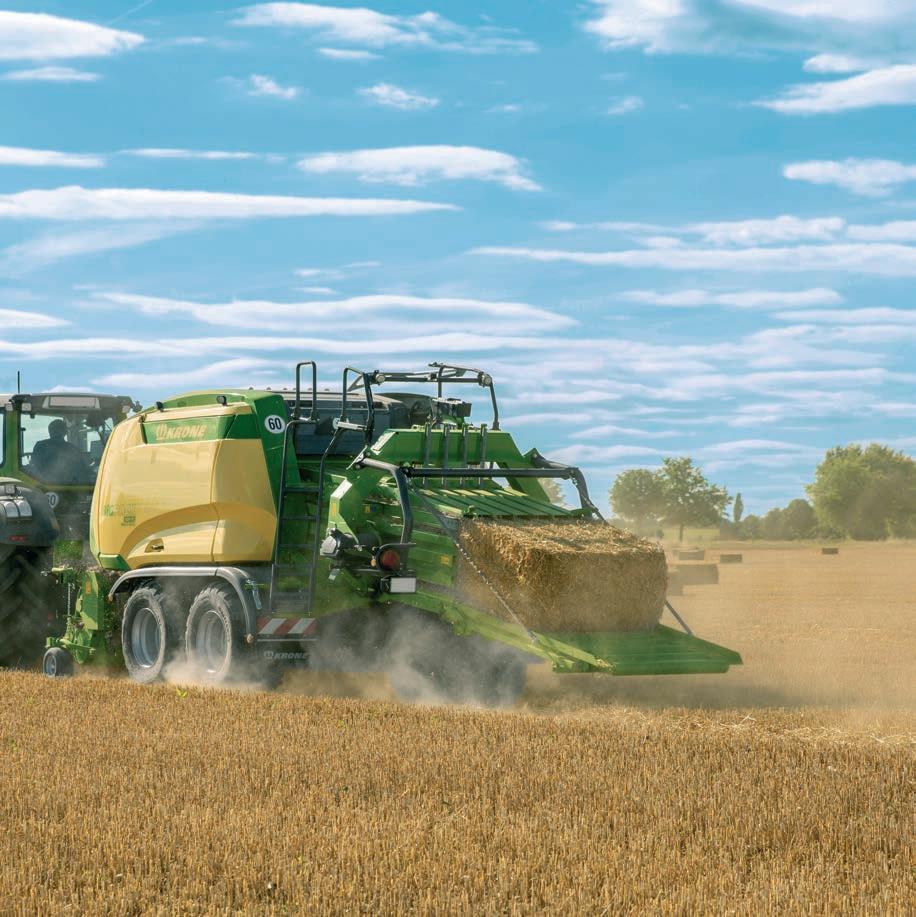

The 5th generation BiG Pack is made for the highest output and advanced operator comfort. Packed with features like twine boxes that open and lower hydraulically and now hold 15kg balls. The adjustable VFS is laid out for even heavier bales, double-knotters that produce no twine tails, the KRONE PowerClean and much more! Discover the new BiG Pack 1290 HDP VC. Are You Ready To Pack A Punch?


Accidents on ATVs are the most significant cause of deaths in agriculture involving moving vehicles, with 14 deaths in the past five years. That’s 14 families destroyed and many others affected by life-changing incidents.
Many ATV users either don’t realise or simply ignore that it is a legal requirement to wear a helmet when using an ATV for work, and anyone not doing so is more likely to suffer a serious head injury, or worse, if they come off. Why would anyone choose to ride or deliberately send an employee or family member out on a job with a sit-astride ATV with no helmet, knowing there is a real and proven risk of loss of life? Helmets do not need to be expensive and there are a variety of suitable options for comfort and practicality.
The HSE says that in any ATV incident where someone is not wearing a helmet, this will be a key part of the investigation and may result in enforcement, including prosecution.
Enforcement action will also be taken if an inspector sees someone working without a helmet on-farm.
Of course, simply wearing a helmet will not keep everyone fully protected and it is important to ensure that anyone riding an ATV is competent and trained to
handle the machine. Training is crucial because it covers essential active riding techniques necessary for the safe operation of the ATV.
The NAAC works with Logic helmets to offer discounts to
members, to ensure there can be no excuses for not wearing a helmet. The contractor association would also like to see all purchasers of quad bikes receive a helmet and training as part of the package.
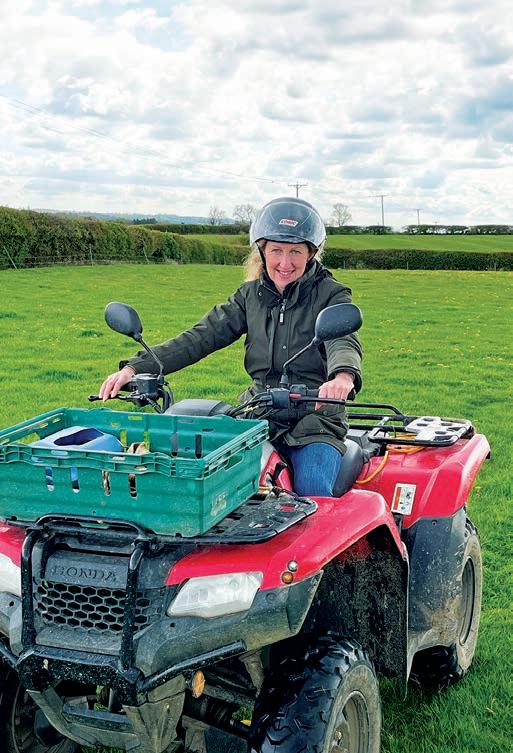
The legal requirement to wear a helmet applies to the farmer, self-employed workers, employees and any other person using the farm quad. This includes children or farm visitors. Note too, that most farm quads are only suitable for people aged 16 and over, so check with the manufacturer. It is illegal for any ATV to be driven for a farming activity by children under the age of 13.
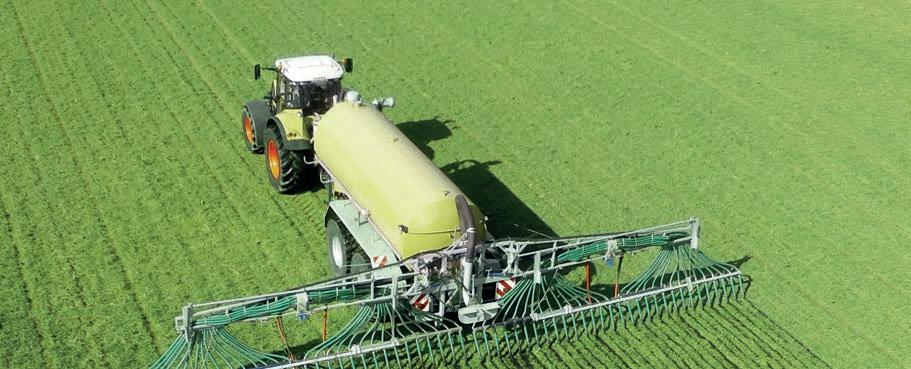
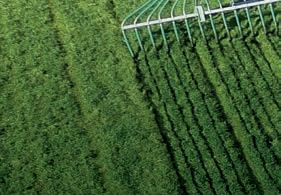



Flexible, reliable and easy to maintain:



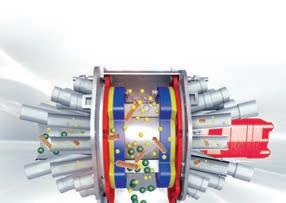




As a pioneer in agricultural technology, Vogelsang leads the way in environmental friendly spreading equipment. The dribble bar systems combined with the ExaCut distributor give the highest application of liquid manure nutrients.
Dribble bars are available in working widths of 7.5m right up to 36m and are retrofit-friendly. e way bar
For more information visit www.vogelsang.info/en-uk/dribble-bar-systems
VOGELSANG – LEADING IN TECHNOLOGY
Contact us at:
01270 216 600 | sales.uk@vogelsang.info
vogelsang.co.uk
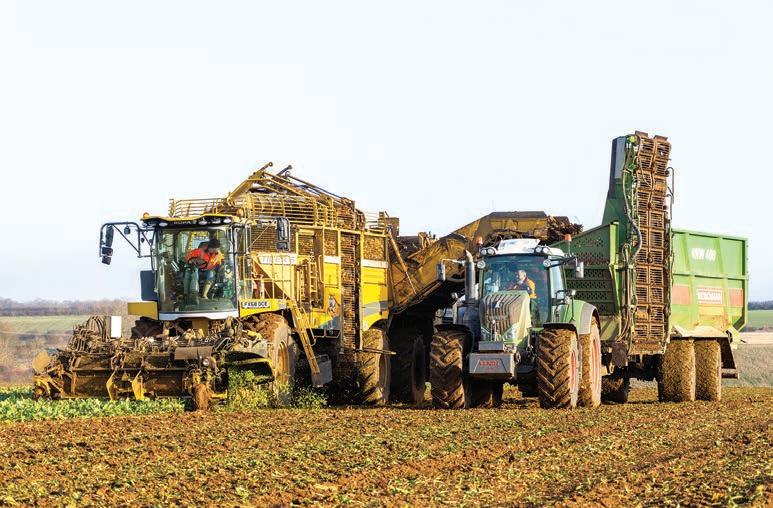
Every agricultural contracting business is different but the majority of them have started out small and gradually built up a range of services to meet the specific needs of farmers and land managers in their area. Some offer a full range of services, taking on most aspects of agricultural work, while others specialise in particular operations such as arable or grassland work, lime spreading or crop protection.
The demand for agricultural contracting services has been growing in recent years and is expected to grow further.
Figures from the National Association of Agricultural Contractors (NAAC) show the extent to which the farming industry relies on contractors. They indicate that contractors buy almost all of the new self-propelled forage harvesters sold in the UK, harvest 85 per cent of the sugar beet crop and spread 70 per cent of the slurry. In fact, it is estimated that more than 90 per cent of farmers make use of contractor services. So contractors are a vital and integral part of UK agriculture.
Agricultural contracting is also an innovative industry,
often offering farmers the latest technology and systems from high capital cost equipment with skilled operators providing a professional service.
The business opportunities available to those entering the agricultural contracting industry are wide and varied, and many of those starting out on this new career path have either worked for a contractor or been brought up on a farm but have needed to find new opportunities.
NAAC vice-chairman Matt Redman started his Cambridgeshire-based
contracting business, Matt Redman Agriculture, in 2012 and it has grown to the extent that he now also farms on his own account.
“Contracting is an excellent way to get experience and build up the required machinery, while waiting for the opportunity to farm on your own,” says Matt, who started his business by providing contracts spraying services. It has now expanded to include a complete range of contracting services as well as full farm contracting and a farm tenancy.
For anyone considering becoming an agricultural contractor, the NAAC offers the following pointers.
Before taking the plunge and investing in equipment to offer contracting services, a new business needs to identify the market for its intended services. Simply offering similar services to other established contractors in the area is likely to make it difficult to attract customers, so finding a niche market or unfulfilled area is ideal. Trying to attract loyal customers from other local contractors by undercutting prices is likely to make a business unviable.
Many new entrants to contracting generally start by offering a specialist service or services that can be offered separately or as a package. Whole farm contracting and joint farming arrangements will usually require greater investment but are
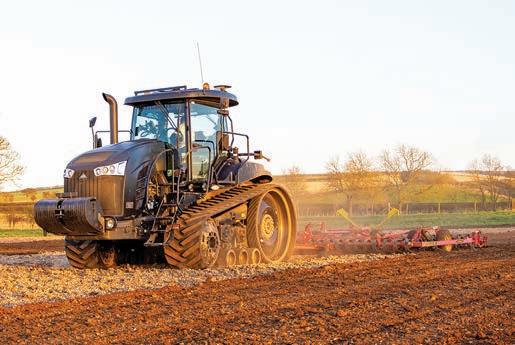
opportunities that can be entered as a business grows. Finding the right niche can be the start of a growing and successful business.
Each operation needs to be carefully costed in order to work out how much to charge for a job. It needs to include the contractor/operator time, machinery cost and a profit margin for reinvestment in future new machinery.
Machinery replacement costs have been escalating considerably, so careful calculation is needed to ensure that a return on capital invested is possible, as a job’s not worth doing if it doesn’t pay.
There will be times when money isn’t being directly earned, such as travelling time, when carrying out maintenance and repairs or simply when machinery is standing waiting for suitable weather to work. A margin has to be included to cover this ‘dead’ time,
Established agricultural contractors offer farmers the latest technology and systems from high capital cost equipment with skilled operators.
Established contracting businesses will quote prices that cover their costs, provide a return on capital and allow them to reinvest in new equipment to maintain the level of service for their customers. While it may seem tempting for a new contractor to try to undercut others to gain business, if it doesn’t provide the return to be able to reinvest, the new business will not last long.
In addition to carrying out the land work, a contractor also has to spend time providing quotes for customers and invoicing for work done in order to bring in the income. It’s also likely to involve chasing customers for payment, as payment delays can involve overdraft fees or take a business to its overdraft limit.
Insurance is essential because things can and do go wrong, and when mistakes happen the costs can be big. NAAC members are required to have
Employer’s Liability Insurance
up to £10mn indemnity, and Public Liability/Product Liability Insurance providing a limit of not less than £1mn in one claim.
A good business needs good staff and once a contracting enterprise moves beyond the one-man-band stage, reliable and trained staff are essential. And when a business has good staff it needs to keep them and show appreciation for their commitment by having contracts of employment that will protect them and the business. Staff need to be motivated and have all the all necessary training and certification for the work they do.
A professional contracting business needs to be aware of the laws covering its activities and comply with them.
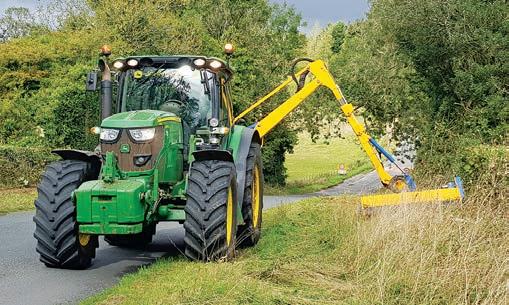
Knowing and working within the regulations concerning driving licences, large machinery road movements and the colour of diesel to use are all essential to keeping vehicles on the road and working. And all operations must comply with Health & Safety requirements.
Customers expect contractors to have trained staff and
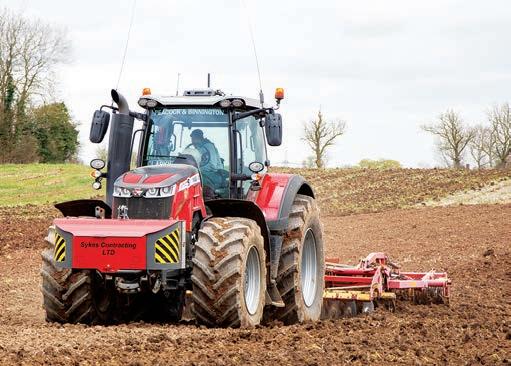
If a business is to grow, work must be costed to provide capital reinvestment in new and replacement equipment
professional standards which can lead to repeat business.
The NAAC’s Assured LandBased Contractor is an independently-assured scheme that assists with a professional approach and helps a business supply paperwork to prove professionalism. See page 28.
Networking with other contractors can help with information on legislation, safety and technical issues. The NAAC helps to keep contractors up to date and provides advice on issues affecting their businesses. At its meetings and training events, contractors can discuss common issues and be kept informed of innovative new ideas and technology.
There’s also access to a comprehensive health and safety package with back-up from an advisor, a legal helpline, transport helpline and insurance. For more information, visit www.naac.co.uk or call 01780 784631.


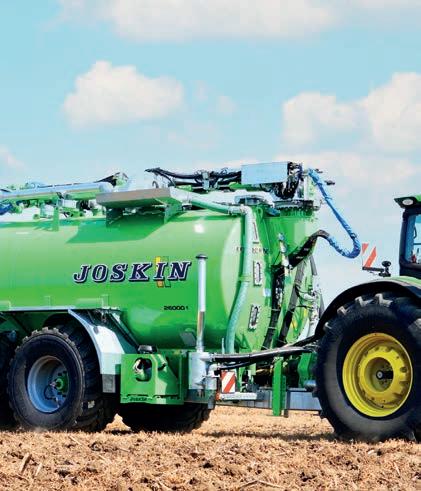
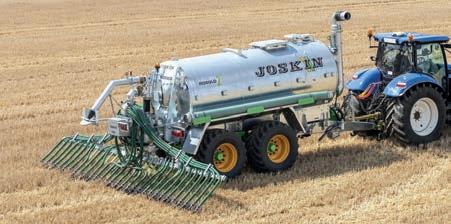

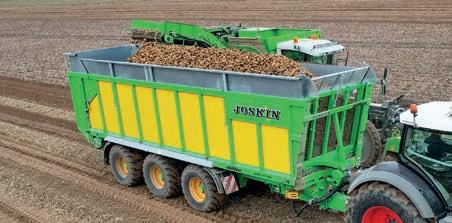




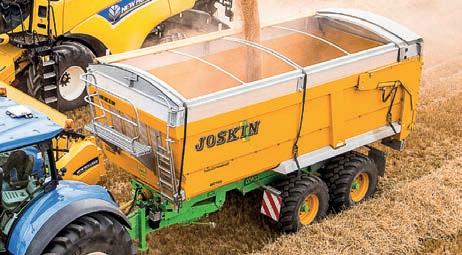

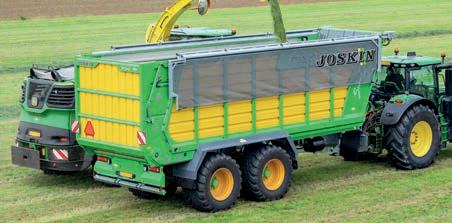
Farm contracting businesses can never stand still in terms of the services they provide, and despite growing his J. A. Lunn business over 12 years, North Yorkshire contractor Alec Lunn, felt he needed to diversify to move forward. When an opportunity arose to take on some destoning work on potato ground, he took it up enthusiastically, and now the specialist potato services he provides include bed tilling, planting and harvesting in addition to destoning.
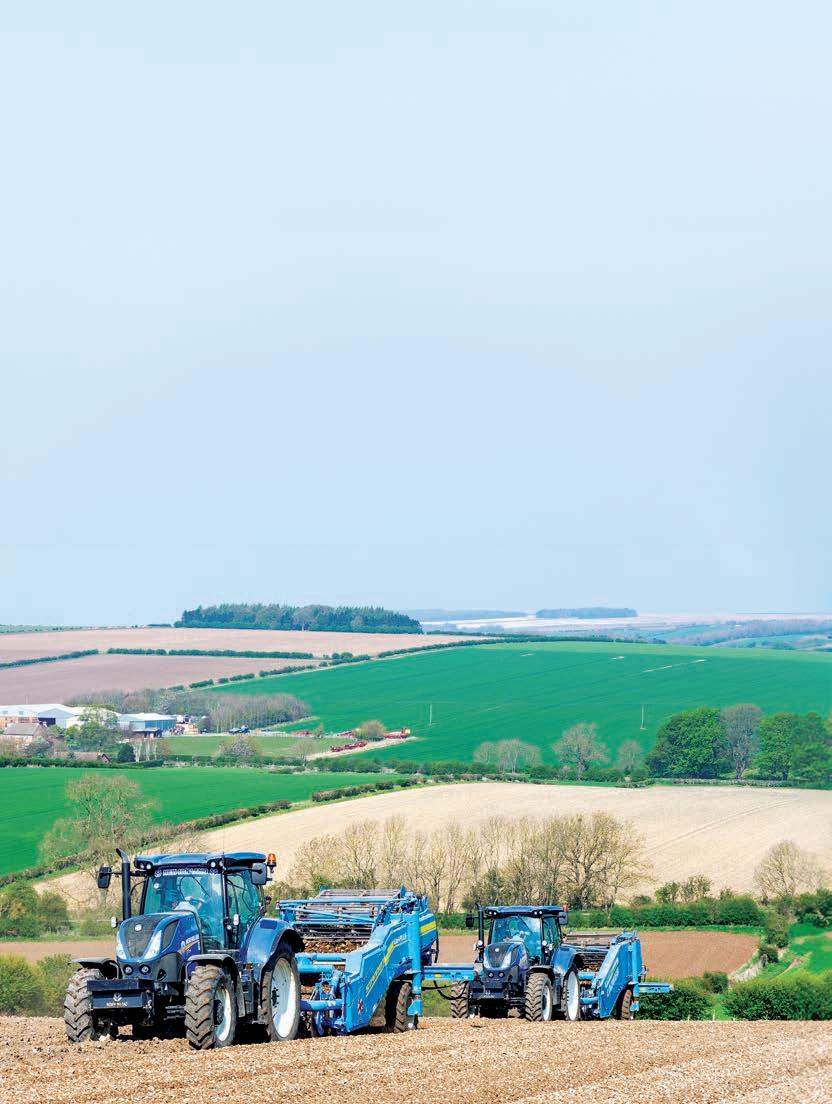
Alec had started out on his own in 2001 after working with a contractor for a number of years. He’d been saving to buy a tractor when a friend announced he was selling his baling business. With a tractor, new round baler and a hedge cutter for winter work, he made his start, and by the following year was also offering a full silage service, with mowing, tedding, raking, chopping and ensiling.
The tractor fleet began to expand and was eventually joined in 2008 by a John Deere self-propelled forager harvester.
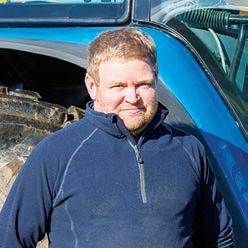
Above: Alec Lunn started contracting in 2001 and began to add specialist potato services 10 years ago to the range of work he carries out for his Yorkshire customers.
Below: Alec Lunn often runs his two Standen stone and clod separators, seen here working on stony Yorkshire Wolds soils, in tandem.
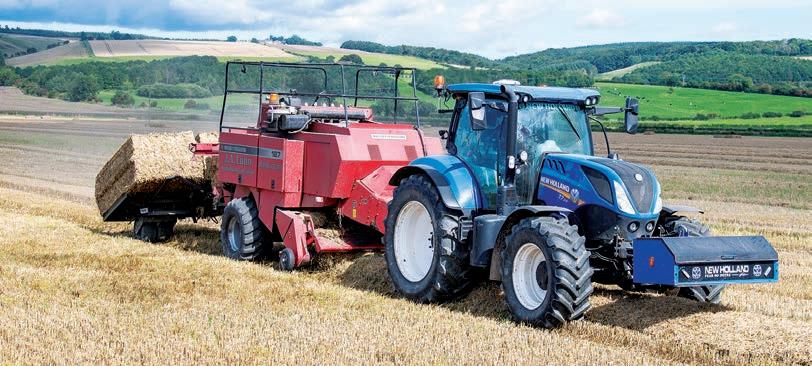
It was upgraded to more modern John Deere machines over the following years and then to the Claas Jaguar machine he operates today. Other grassland equipment includes front-and rear mounted Claas mowers, an 8.0m tedder and twin-rotor rakes
For silage, hay and straw the equipment includes big square balers equipped with bale accumulators and a round baler/wrapper combination.
Forage harvesting, baling, hedge cutting, ploughing and drilling are the backbone of the business, but more than 10 years ago Alec felt he needed to add something else to the services he offered. There were other contractors in his area offering similar services to his, and he wanted to find something different to keep the business developing.
The opportunity he needed arose out of work he was already doing. He’d been using one of his tractors to operate a customer’s destoner for a few
years when, in 2013, another customer asked if he could take on 50 acres of potato bed separation. Keen to take on the work, he bought an older Reekie 330SA machine.
Alec’s usual policy for machine purchases was to go for new or nearly new equipment and low-hour used tractors to operate them, but buying an older Reekie separator proved a costeffective way for the business to provide a new service without a large capital outlay.
The following year there were a further 250 acres of potato bed separation work to do, so a second used Reekie separator was bought to provide sufficient capacity.
“They were good, simple separators that were easy to maintain and acquire parts for, but they weren’t the most efficient because, being older, they had many manual adjustments,” says Alec.
The destoning work was developing nicely but the
Reekie machines weren’t necessarily the best or most efficient equipment for the job. So during the 2015 season Alec had a demonstration of a year-old Standen Uniweb separator. He chose some land on the Yorkshire Wolds with a lot of chalk and flint in it to give it a vigorous work out. The Standen machine proved successful, being at least 25 per cent more efficient and productive that the Reekie equipment and coping well with the stony conditions.
It was purchased, but a wet start to the following season brought a requirement to increase the stone and clod separating capacity and a 20-year-old Pearson Megastar was purchased to work with the Standen machine.
That year the Standen Uniweb was used on the greater proportion of the ground on the Yorkshire Wolds, along with one of the Reekies that had been kept, while the Pearson Megastar had been bought
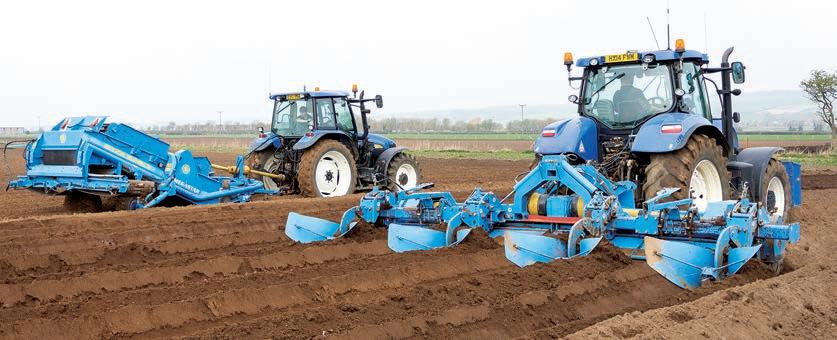
specifically to work on cloddy soils with little or no stone. Its design meant its rotor shafts could have been damaged in the very stony conditions of the Wolds soil. With a power requirement of just 90hp from the tractor, the Megastar was initially operated by an older New Holland TM140, which was more than adequate for it. Additional development of the business occurred with a new customer’s requirement for a further 300 acres of destoning and potato harvesting, and a three-year old two-row Standen T2 harvester was purchased especially for the job. Alec’s original old Reekie destoners were retired although one was retained and refurbished to be kept in case of need for a back-up machine, and a slightly newer Reekie Reliance 500 was purchased as an additional back-up.
The destoner fleet was further extended with the purchase of a new Standen Uni-Plus which Alec generally uses in tandem with the older Standen Uniweb, operating them with New Holland T7.210 and T7190 tractors respectively. He finds the four-web
machines ideal for creating beds on the stony Yorkshire Wolds ground. By 2019, six years after taking on 50 acres of destoning, his Uni-Plus, UniWeb and Megastar separators were carrying out 600 acres of work.
In order to be able to offer his potato-growing customers further services, Alec invested in further equipment to carry out additional work. He purchased a set of four-body Standen BX ridgers along with a Powervator 400/200 triple bed tiller that he operates with a New Holland T7.235 that has been boosted to 270hp.
“It made sense to invest in the ridging bodies and bed tiller, given the amount of destoning we were doing,” says Alec.
Involvement in the first and last stages of the potato growing process have led Alex to look at further involvement in order to be able to offer a complete plantingto-harvesting service. While most customers for whom he did destoning work planted their own crop,
he began looking at investing in a planter, and with the ban on chemical products for potato haulm desiccation he also purchased a set of Baselier hydraulic-folding front- and rear-mounted potato toppers.
The gradual development and investment by Alec Lunn in the potato work over the past 10 years shows how grasping an opportunity to diversify into a specialist area can extend the range of services a contractor offers. The result is a business with greater resilience against changing market conditions to ensure that it can continue to develop into the future.
Below: Alec Lunn has added specialist potato services to his portfolio, but general agriculturall work, including drilling, ploughing, forage harvesting and hedge cutting remain the backbone of the business.
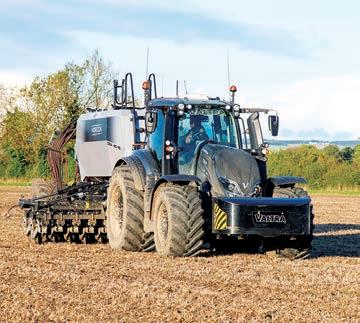
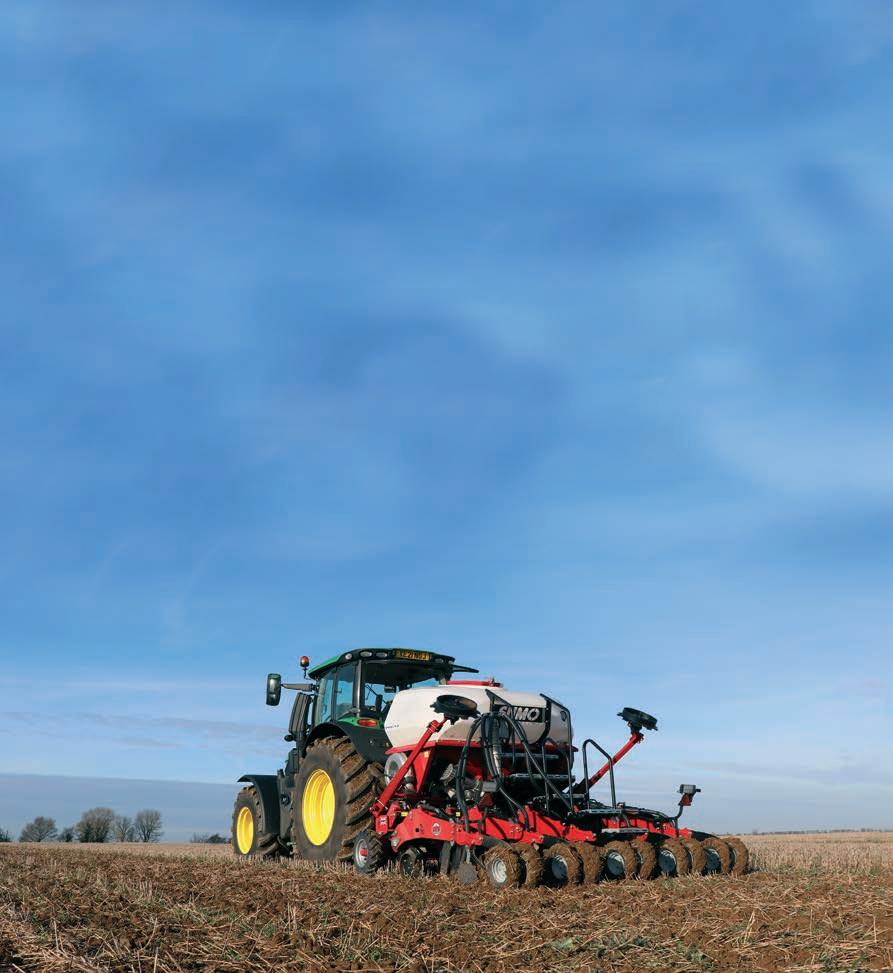




As farmers and other land managers lean increasingly heavily on contractors to provide the latest machinery, groundbreaking technology and trained, skilled staff, the burdens of responsibility, finance and paperwork fall heavily on the contractor’s shoulders.
More than nine out of 10 farmers use a contractor and as farms rethink business plans with declining direct payments, it is expected that agricultural contractors will play an increasingly vital role by taking on whole farms and specialist operations. This will require increasing professionalism, environmental awareness and
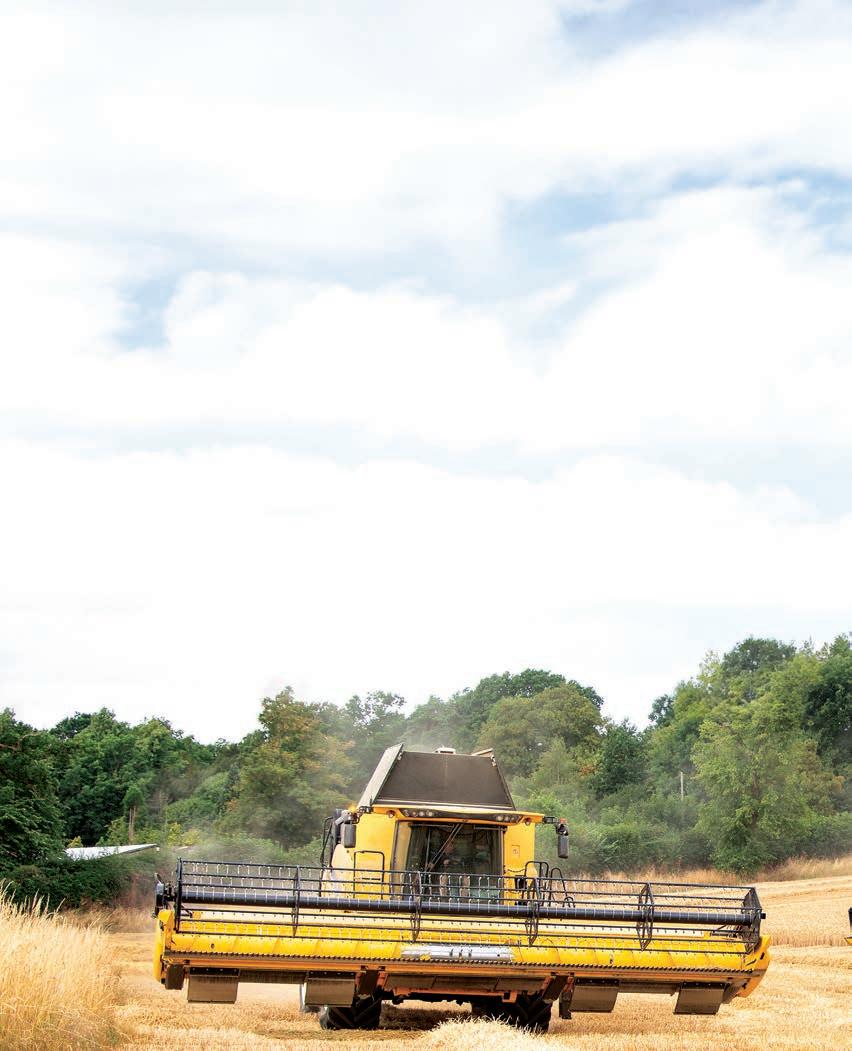
an ability to withstand the pressures of financial challenges and staff management.
Contractors will need to be industry leaders to provide a service to customers that can help increase productivity while protecting the soil, water and surrounding biodiversity.
One way to prove professionalism and stand apart from the competition is to become an NAAC Assured Land-Based Contractor (ALBC).
The words ‘assurance scheme’ are often met with a raft of grumbling and expletives, but the NAAC has worked hard to keep its schemes practical and sensible, yet robust and credible, while putting contractors through
their paces to ensure they have all the necessary paperwork and protocols in place.
The ALBC scheme is an independently audited set of standards, with quality control and traceability as essential elements. Being a member of ALBC provides a contractor’s customers with genuine assurance that the contractor’s work is carried out in a safe, professional and traceable way.
The ALBC scheme initially developed after a successful Defra funding bid in 2006, and has since evolved slowly and carefully, allowing the industry to keep pace but being available whenever proof of the sector’s professionalism has been required.
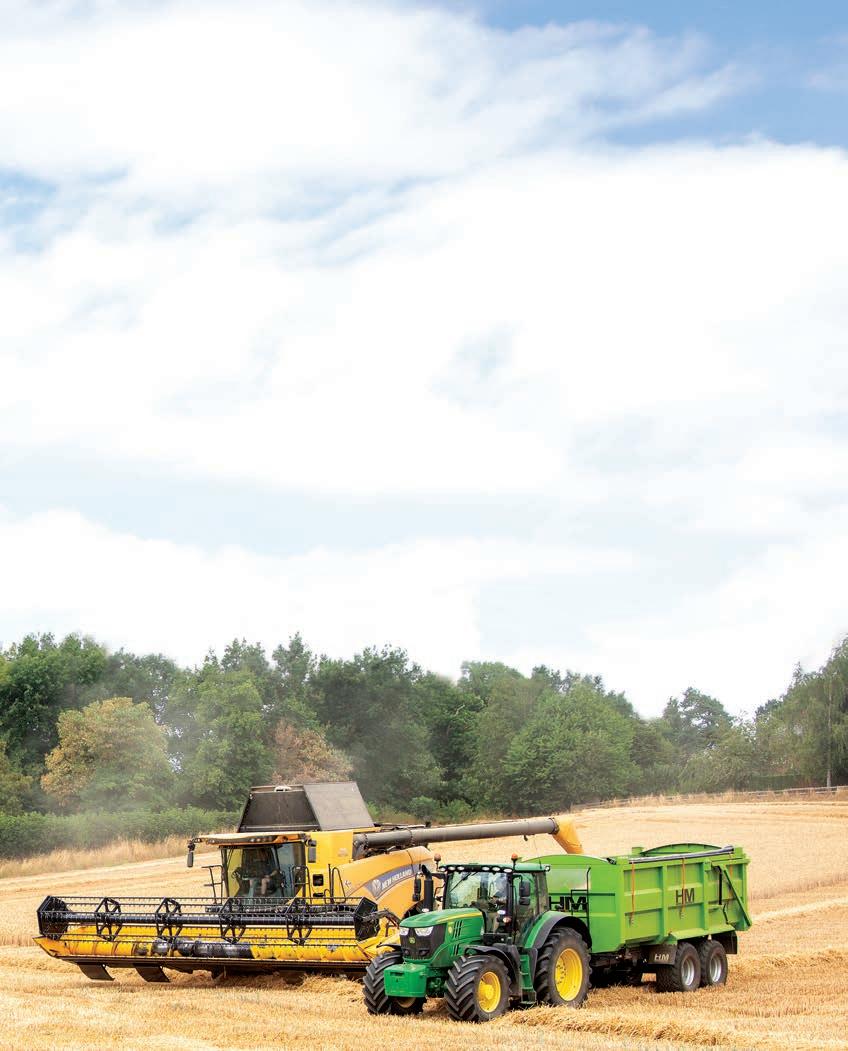
The NAAC runs four schemes, all independently audited by certification body Supply Chain In-Sites. They are:
• Agricultural Operations, plus crop spraying and spreading material to agricultural land.
• Verified Seed for mobile seed processors.
• Mobile Feed Mixing and Processing
• Potato Fogging Application post harvest treatment.
The intention of the ALBC scheme is to protect and assist professional contractors by giving them a credible tool to audit their business and it is designed for all contracting businesses that are providing a reliable and quality service. The basis of each standard is a module which looks at the core of a contracting business, covering insurance, staff, health
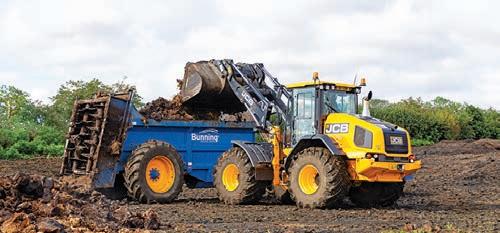
and safety, machinery and complaints procedures. Each scheme then has an additional module covering the technical aspects of the specific operation.
The ALBC scheme participants will have protocols and paperwork in place and up-to-date. The majority of the requirements are to help keep businesses within their statutory obligations and while many contractors may already have this in place in an unstructured way, the schemes help to keep
a grip on it and ensure that everything is up to date. There will be operators who have sleepless nights worrying about legal compliance and ‘what ifs’. The ALBC audit will raise any non-compliances and will highlight where new procedures or business practices may be needed. The NAAC can then offer support and assistance to ensure that systems can be put in place easily and with minimal hassle. For further details visit www.naac.co.uk

Many might think that drug problems in the workplace don’t apply to agriculture, but according to a 2019 report, around three million people in England and Wales used drugs. Drug use is often perceived as a problem of the inner city, but substance use and misuse have long been prevalent in rural areas.
According to the Crime Survey for England and Wales, approximately one in 11 adults aged 16-59 years reported drug use in the year ending June 2022; in younger people it is even higher, at one in five of those aged 16 to 24 years. The police have also indicated that there can be links to road fatalities involving tractors and drugs.
Under the Health and Safety Act of 1974, employers have a duty to ensure that their
employees have a safe place to work and that they are fit and able to carry out their work. As employers, farmers and contractors may be liable if any of their employees cause an accident whilst under the influence of drugs or alcohol.
To assist agricultural contractors in being aware of potential dangers in the workforce, the National Association of Agricultural Contractors has produced detailed guidance for members on drink and drugs in the workplace. This covers the difficult but important issue of staff screening.
While alcohol is usually out of the drinker’s system within 24 hours, some recreational drugs can stay in the system for many days, impairing driving ability and judgement. So any
drug use can put others at risk. It is an issue that businesses employing staff need to be aware of and consider introducing drugs testing. However, there must be clear rules in place. These can be included in the employees’ contract or as a standalone policy within a staff handbook or health and safety procedures document.
If introduced as a new policy, in any format, the employer needs to ensure that all staff are made aware of its existence and, if appropriate, contracts re-issued and signatures obtained. Once this is in place, staff may be subject to random drug tests, having been informed that the use of drugs and alcohol in the workplace, or being under the influence of drugs or alcohol, is a dismissible offence.

